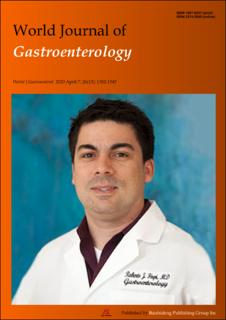| dc.contributor.author | El-Salhy, Magdy | |
| dc.date.accessioned | 2021-04-21T09:43:33Z | |
| dc.date.available | 2021-04-21T09:43:33Z | |
| dc.date.created | 2020-05-14T13:08:37Z | |
| dc.date.issued | 2020 | |
| dc.Published | World Journal of Gastroenterology. 2020, 26 (13), 1427-1438. | |
| dc.identifier.issn | 1007-9327 | |
| dc.identifier.uri | https://hdl.handle.net/11250/2738832 | |
| dc.description.abstract | The pathophysiology of irritable bowel syndrome (IBS) is not completely understood. However, several factors are known to play a role in pathophysiology of IBS such as genetics, diet, gut microbiota, gut endocrine cells, stress and low-grade inflammation. Understanding the pathophysiology of IBS may open the way for new treatment approaches. Low density of intestinal stem cells and low differentiation toward enteroendocrine cells has been reported recently in patients with IBS. These abnormalities are believed to be the cause of the low density of enteroendocrine cells seen in patients with IBS. Enteroendocrine cells regulate gastrointestinal motility, secretion, absorption and visceral sensitivity. Gastrointestinal dysmotility, abnormal absorption/secretion and visceral hypersensitivity are all seen in patients with IBS and haven been attributed to the low density the intestinal enteroendocrine cells in these patients. The present review conducted a literature search in Medline (PubMed) covering the last ten years until November 2019, where articles in English were included. Articles about the intestinal stem cells and their possible role in the pathophysiology of IBS are discussed in the present review. The present review discusses the assumption that intestinal stem cells play a central role in the pathophysiology of IBS and that the other factors known to contribute to the pathophysiology of IBS such as genetics, diet gut microbiota, stress, and low-grade inflammation exert their effects through affecting the intestinal stem cells. It reports further the data that support this assumption on genetics, diet, gut microbiota, stress with depletion of glutamine, and inflammation. | en_US |
| dc.language.iso | eng | en_US |
| dc.publisher | Baishideng Publishing Group | en_US |
| dc.relation.haspart | World Journal of Gastroenterology. 2020, 26(13): 1427-1438 El-Salhy M. Possible role of intestinal stem cells in the pathophysiology of irritable bowel syndrome. World J Gastroenterol. 2020, 26(13), 1427-1438 | en_US |
| dc.rights | Navngivelse-Ikkekommersiell 4.0 Internasjonal | * |
| dc.rights.uri | http://creativecommons.org/licenses/by-nc/4.0/deed.no | * |
| dc.title | Possible role of intestinal stem cells in the pathophysiology of irritable bowel syndrome | en_US |
| dc.type | Journal article | en_US |
| dc.type | Peer reviewed | en_US |
| dc.description.version | publishedVersion | en_US |
| dc.rights.holder | Copyright 2020 The Author | en_US |
| cristin.ispublished | true | |
| cristin.fulltext | original | |
| cristin.qualitycode | 1 | |
| dc.identifier.doi | 10.3748/wjg.v26.i13.1427 | |
| dc.identifier.cristin | 1811026 | |
| dc.source.journal | World Journal of Gastroenterology | en_US |
| dc.source.40 | 26 | |
| dc.source.14 | 13 | |
| dc.source.pagenumber | 1427-1438 | en_US |
| dc.source.volume | 26 | en_US |
| dc.source.issue | 13 | en_US |

